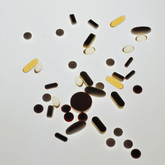Generics/General
Generics applications under review by EMA – April 2017
Generic medicines in Europe can be approved either centrally via the European Medicines Agency (EMA) or nationally via the local regulatory body [1]. Approval by EMA takes place by using a centralized procedure. This leads to approval of the product in all 28 European Union (EU) Member States and in Iceland, Liechtenstein and Norway. At a country level, if approval in a single EU Member State only is required, this can take place using the national procedure. However, as soon as a company seeks approval in two or more Member States, a decentralized procedure or mutual recognition procedure must be used [2].
Indian drug industry faces setbacks in Europe and the US
The European Medicines Agency (EMA) has announced that they have recommended the suspension of generic drug approvals and drug applications of over 300 drugs. This is due to unreliable bioequivalence studies carried out by the Indian contract research firm Micro Therapeutic Research Labs.
FDA commits to success of the generic and biosimilar second-generation user fee acts
Representatives of the Centre for Drug Evaluation and Research (CDER), the Association of Accessible Medicines (AAM), the Biotechnology Innovation Organisation (BIO) and the Biosimilars Council Director reportedly testified on 8 March 2017 as to their commitment to the US Food and Drug Administration’s (FDA) recommendations for the second generation of user fee agreements covering both generics and biosimilars.
Malaysian Government approves new generics facility
Bangladesh-based generics firm Beximco Pharmaceuticals (Beximco) has made a deal with Malaysia’s BioCare Manufacturing (BioCare) to manufacture and supply differentiated medical products in the country.
Novo Nordisk becomes second pharma company to cap price hikes
Danish pharmaceutical company Novo Nordisk has pledged to limit the price rises of their drugs to single digit increases each year, following the commitment made by Allergan in September 2016.
Generics regulators outline priorities to 2020
The International Generic Drug Regulatory Programme (IGDRP) announced on 21 December 2016 that it had released its ‘Roadmap to 2020’, which outlines the group’s priorities until 2020. The document outlines those priorities as including five initiatives geared toward harmonizing global regulations for generics.
Generics applications under review by EMA – December 2016
Generic medicines in Europe can be approved either centrally via the European Medicines Agency (EMA) or nationally via the local regulatory body [1]. Approval by EMA takes place by using a centralized procedure. This leads to approval of the product in all 28 European Union (EU) Member States and in Iceland, Liechtenstein and Norway. At a country level, if approval in a single EU Member State only is required, this can take place using the national procedure. However, as soon as a company seeks approval in two or more Member States, a decentralized procedure or mutual recognition procedure must be used [2].
UK competition authority accuses Actavis of overcharging NHS
The UK’s Competition and Markets Authority (CMA) has accused Actavis of breaching competition law by increasing the price of generic hydrocortisone tablets by more than 9,500−12,000% compared to the brand-name product, which was sold by a different company prior to April 2008.
Competition does not curb high drug prices
With increasing concern over price increases for medicines a new concern being raised is that increased competition in the pharma industry does not always lead to lower prices.
FDA reports record number of generics approvals
The US Food and Drug Administration’s (FDA) Office of Generic Drugs (OGD) latest activity report shows an increase in approvals for generics, including 835 tentative or full approvals issued for the fiscal year (FY) 2016.











